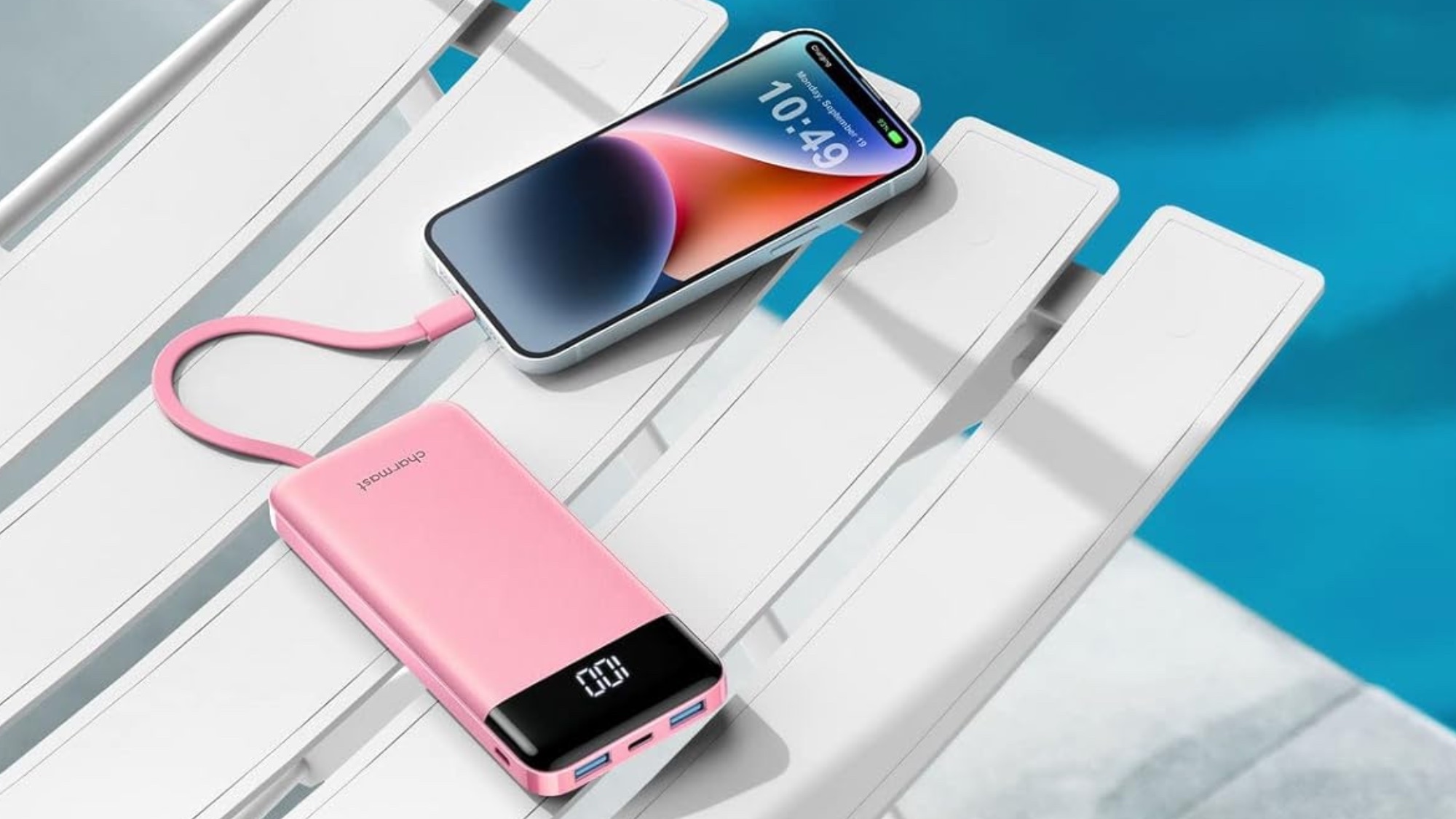Best sleep apps
The best sleep apps for your smartphone can help you get a full night of rest
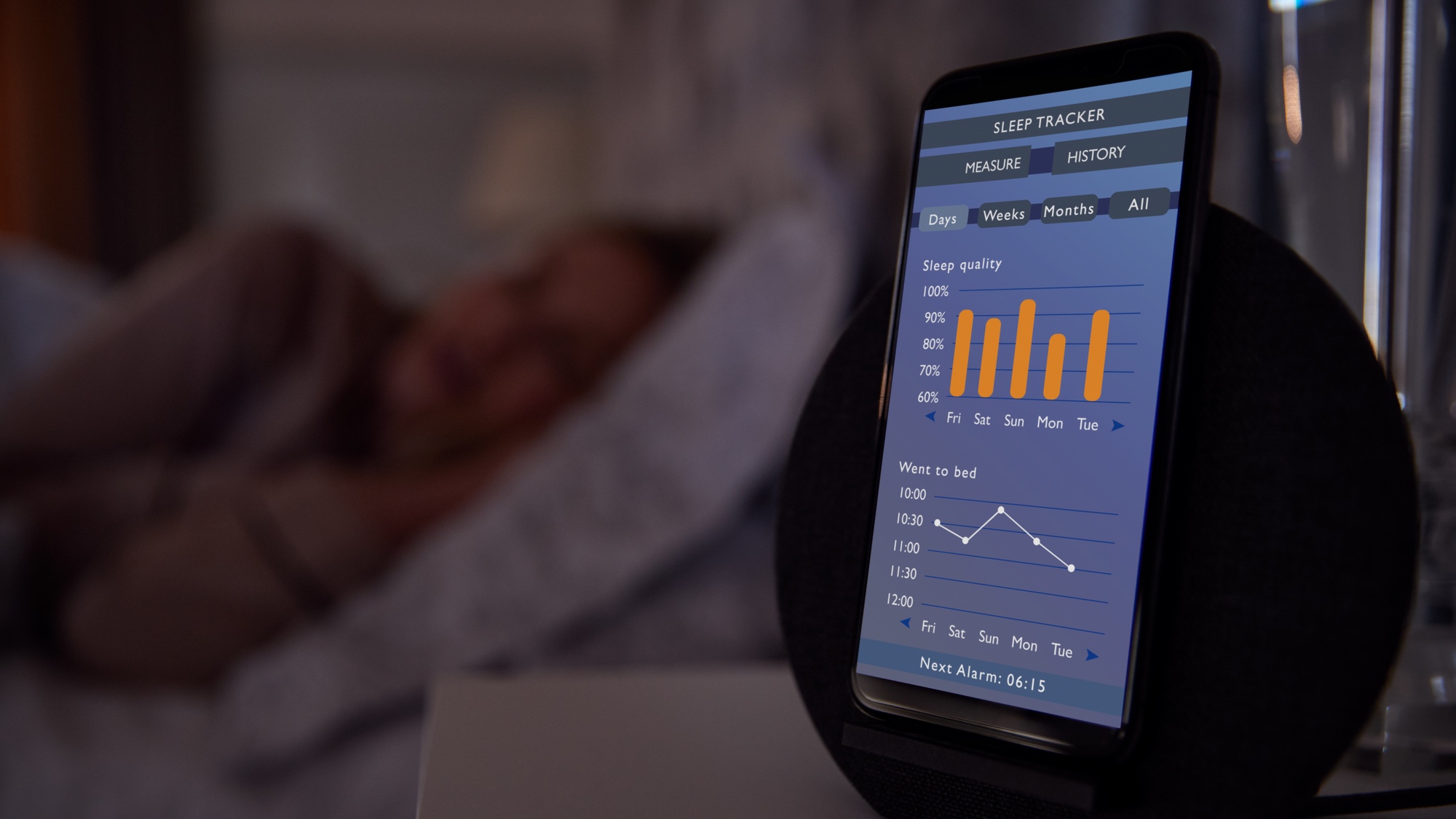
The best sleep apps are proof that knowledge is power. By collecting data about how you sleep and when, you can turn that information into guidance on how to minimize your tossing and turning.
But sleep apps do more than just log data. Some offer soothing sounds and music to help you drift off to sleep. Others are part of an array of meditation and mental wellness features. And some even promise to help you wake up at an ideal time each morning.
It's easy to understand why the best sleep apps are so appealing. Most of us need 8 hours of sleep — and most of us are not getting anywhere close to that. So anything an app can do to help us pinpoint why we're not sleeping is a step in the right direction.
There are lots of ways to improve your sleep from checking out some of the best mattresses to considering one of the best weighted blankets. But a sleep app might also help, especially when paired with the best smartwatches and best fitness trackers to more precisely monitor sleep patterns. Here are the top options we've found.
Or find out if buying blackout curtains may be the answer.
The best sleep apps for Android and iOS
1. Sleep Cycle
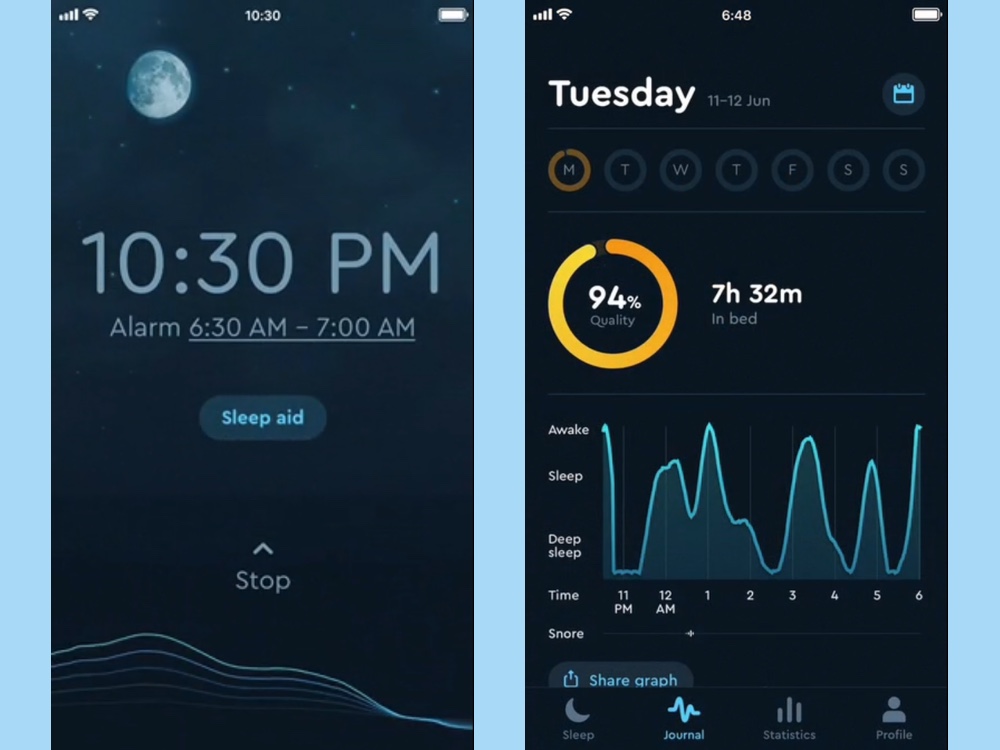
Sleep Cycle takes the scientific approach to waking you up after a good night's rest. Using your smartphone’s accelerometer and other sensors to record your sleeping habits, the free app uses sleep cycle theory to wake you at just the right time, ensuring you’re getting optimal rest.
Users set a window of time (say a 30-minute stretch) instead of a traditional pinpoint alarm time, and when the app judges that your sleep movement is just right, it will ring the alarm to wake you. In addition to the smart alarm, Sleep Cycle records your sleeping habits for tracking sleep quality over time.
The free version of Sleep Cycle collects sleeps stats, provides sleep analysis and integrates with Apple Health (for your iPhone users, at least). For $29.99/year, you can get the premium version of Sleep Cycle, which includes a customizable wake-up window, sleep aids such as stories and sounds, more comprehensive sleep trend and comparison data, and even weather info so you can track how weather conditions affect your sleep.
2. SleepScore
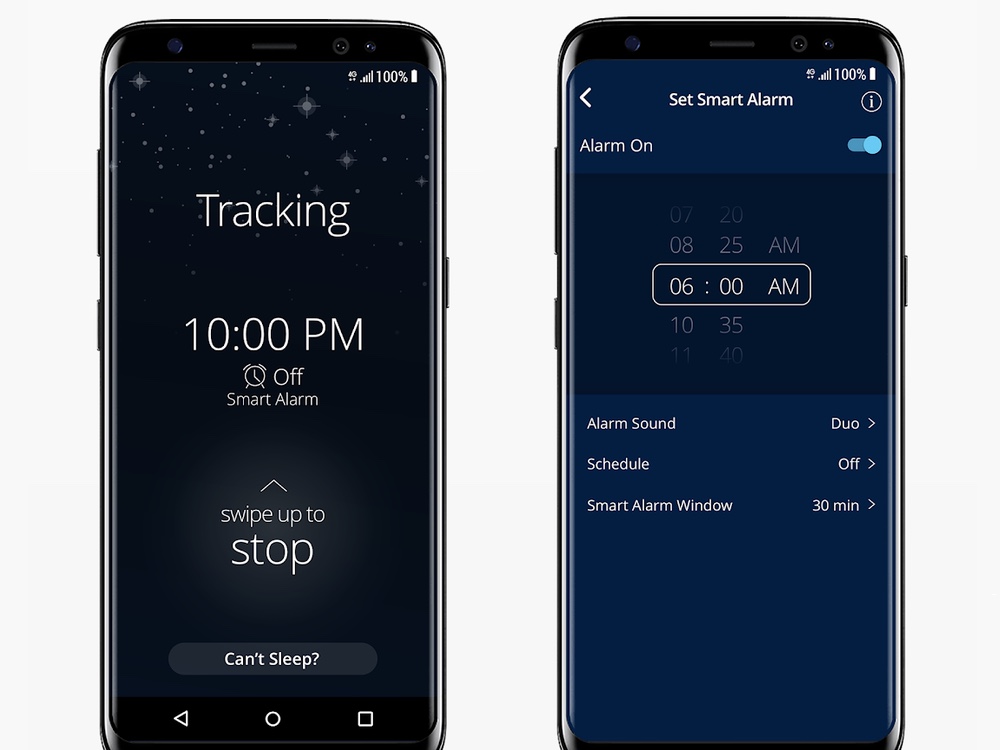
SleepScore takes a different approach to recording your sleep quality than some of the other best sleep apps we've included here. It ditches wearables or the need to place your phone on the mattress to record your movement, instead using your phone’s microphone and speakers like a sonar station to record your sleep movements. That helps the app generate a sleep score and record a variety of other metrics that show your sleep quality.
You can also access tips through SleepScore for how to prepare for better sleep, as well as a smart alarm clock and sleep sounds that can help you drift off to sleep. Premium subscribers get access to longer-term data tracking and more in-depth analysis, as well as a sleep report that you can share with your doctor. A premium subscription costs $9.99 a month.
Note: On Android, the sleep sonar feature is only certified for certain phones like the latest models of the Samsung Galaxy, Note, and Google Pixel.
3. Headspace
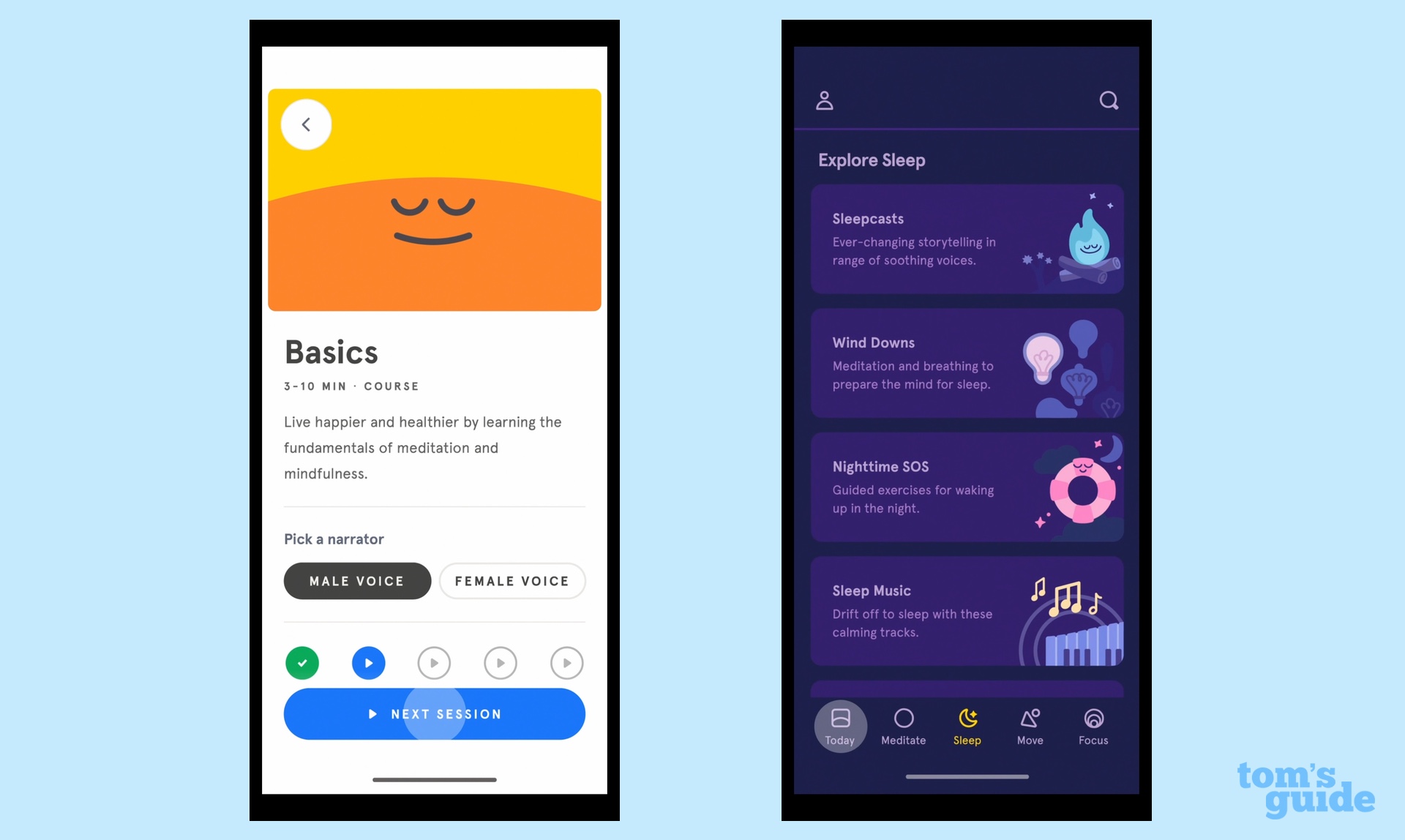
Headspace is more than just one of the best relaxation apps for mindfulness and guided meditation. The app also has a dedicated sleeping aids section, with soothing guided meditation “Sleepcasts” — wind down exercises designed to prepare your mind for rest, and relaxing music to help give you a good night’s rest. That’s all on top of Headspace’s rich library of free and premium guided meditations.
Free Headspace users get a limited library guided meditations and Sleepcasts, with premium subscribers who pay $12.99 a month getting access to the full library with more than 40 different courses and shorter meditations.
4. Calm
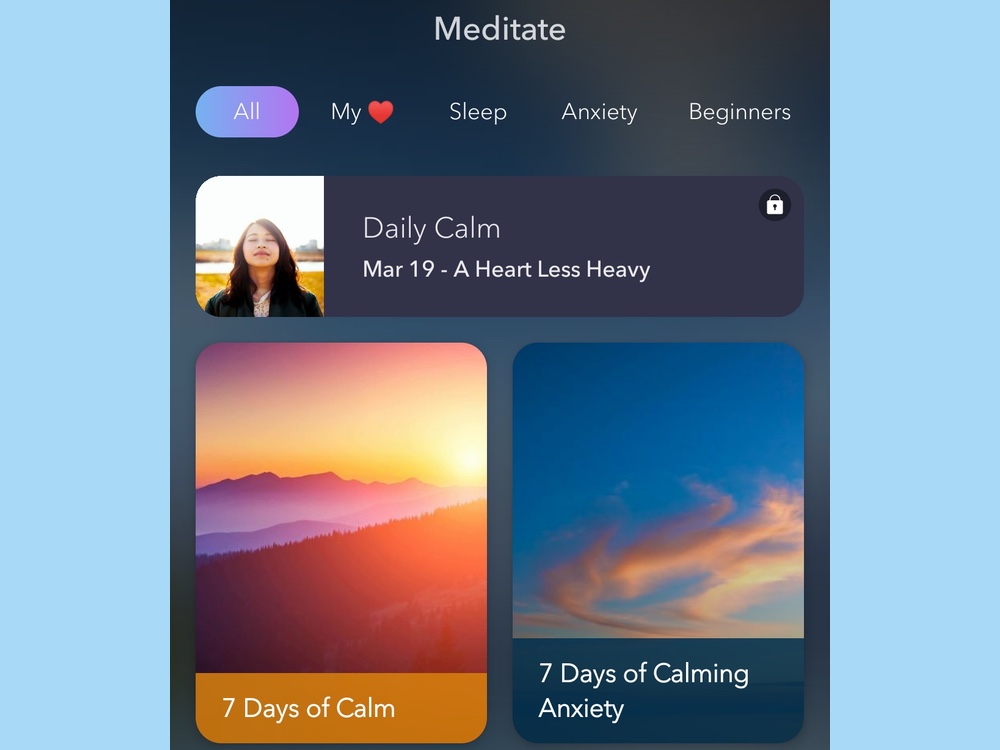
Calm is another relaxation app that finds a place on our list of best sleep apps. This download for guided meditation and mindfulness features a variety of programs to reduce stress and anxiety, which includes helping you get better sleep.
Meditations run a variety of lengths, from 3 to 25 minutes. Besides daily meditations and breathing exercises, Calm features 100-plus Sleep Stories — basically bedtime stories told by the likes of Stephen Fry, Matthew McConaughey and others to put you in a relaxed state of mind. Because of these features, a monthly subscription will cost you $14.99.
5. Pillow
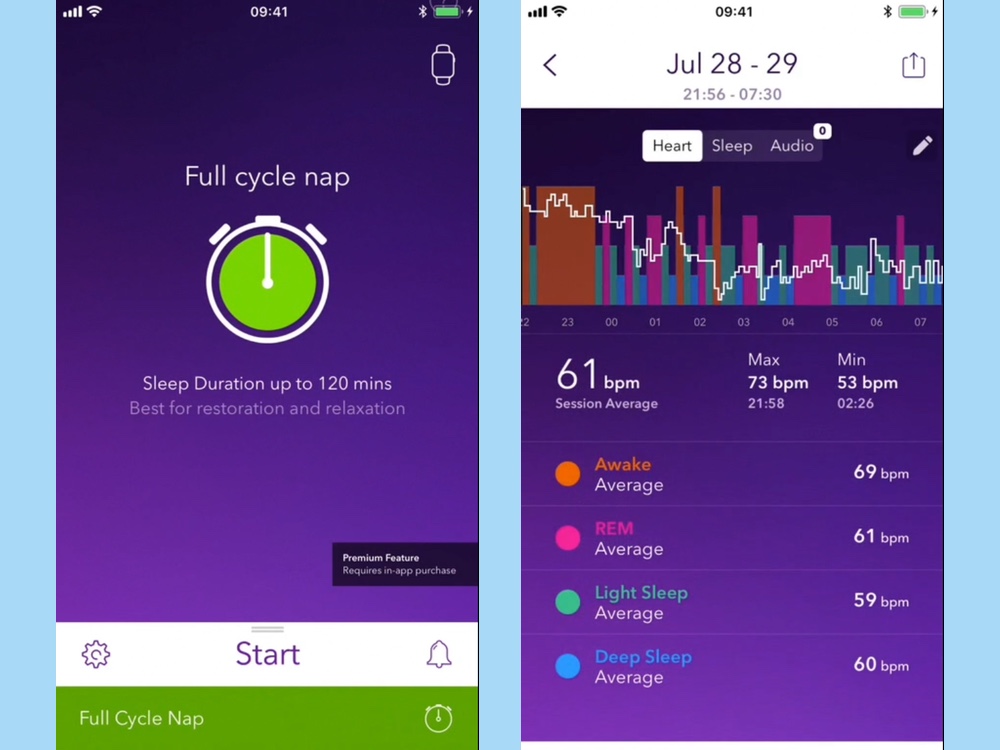
Pillow turns to the sensors on your iPhone or Apple Watch to track your sleep duration and quality. From the data it collects, Pillow can provide breakdowns showing different sleep stages, such as REM and deep sleep, along with heart rate recording and sleep quality assessment. Naturally, as an iOS app, this integrates with Apple's built-in Health app.
A smart alarm feature in Pillow lets the app gently ease you to wakefulness at the best time based on your sleep activity and the time you've set.
The app comes with a wealth of tracking features, and a $6.99 monthly fee unlocks more, such as the option to export your sleep sound recordings, detailed sleep statistics tracking over time, and a power nap mode for shorter bursts of sleep.
- Download Pillow: iOS
6. Sleep As Android
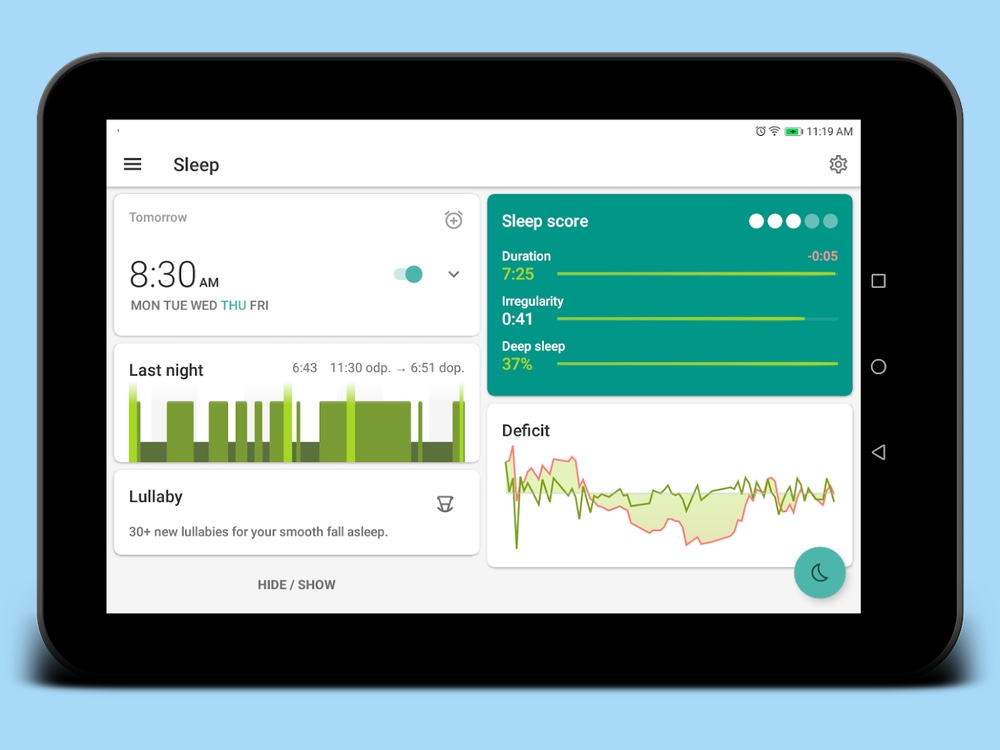
Sleep As Android is another excellent sleep cycle tracker and alarm that uses your Android phone's on-board sensors to track your sleep and help you wake up at just the right time.
In addition to the usual smart alarm and sleep logging features, Sleep As Android offers such extras as a library of soothing sound lullabies, natural sound wake-up noises and Captcha-style wake-up tests that make sure you've properly woken up, instead of clumsily fumbling for the alarm button.
You can use the app for free for a 14-day trial run. After that, free users can only track sleeping every other day. To get the full tracking experience, Sleep as Android costs $19.99.
- Download Sleep as Android: Android
7. Loona
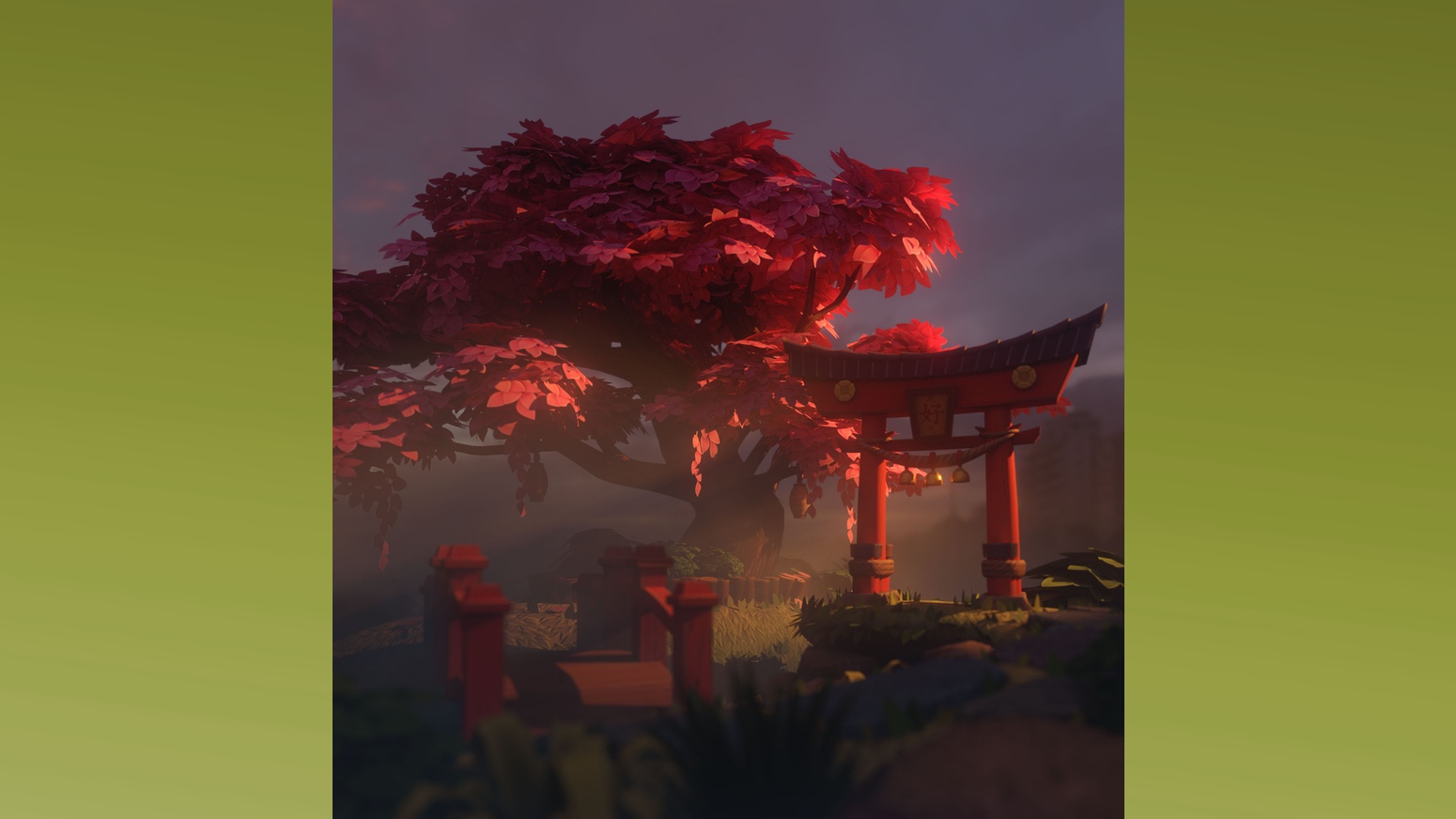
The makers of Loona would balk at their app being described as a sleep tracker. But it's certainly designed to get you in the right mood to sleep, and that's enough to land it on our list of the best sleep apps.
The idea behind Loona is to get you to break free from the emotions of the day with playlists and immersive stories aimed at putting you in a relaxed state of mind. These "sleepscapes," as Loona puts it, involve guided sessions with activity-based relaxation, sounds and stories, all designed to prepare your mind for a restful night.
You only get one sleepscape including three stories and three playlists with the free version of Loona. For more, you've got to subscribe to a subscription costing $12.99 a month. (Lower rates are available if you opt for an annual subscription.) It's not an insignificant cost — though it compares well to Headspace and Calm — but if you're going to bed frustrated with the day you just had, Loona might be able to put you in the proper frame of mind.
8. Breathwrk
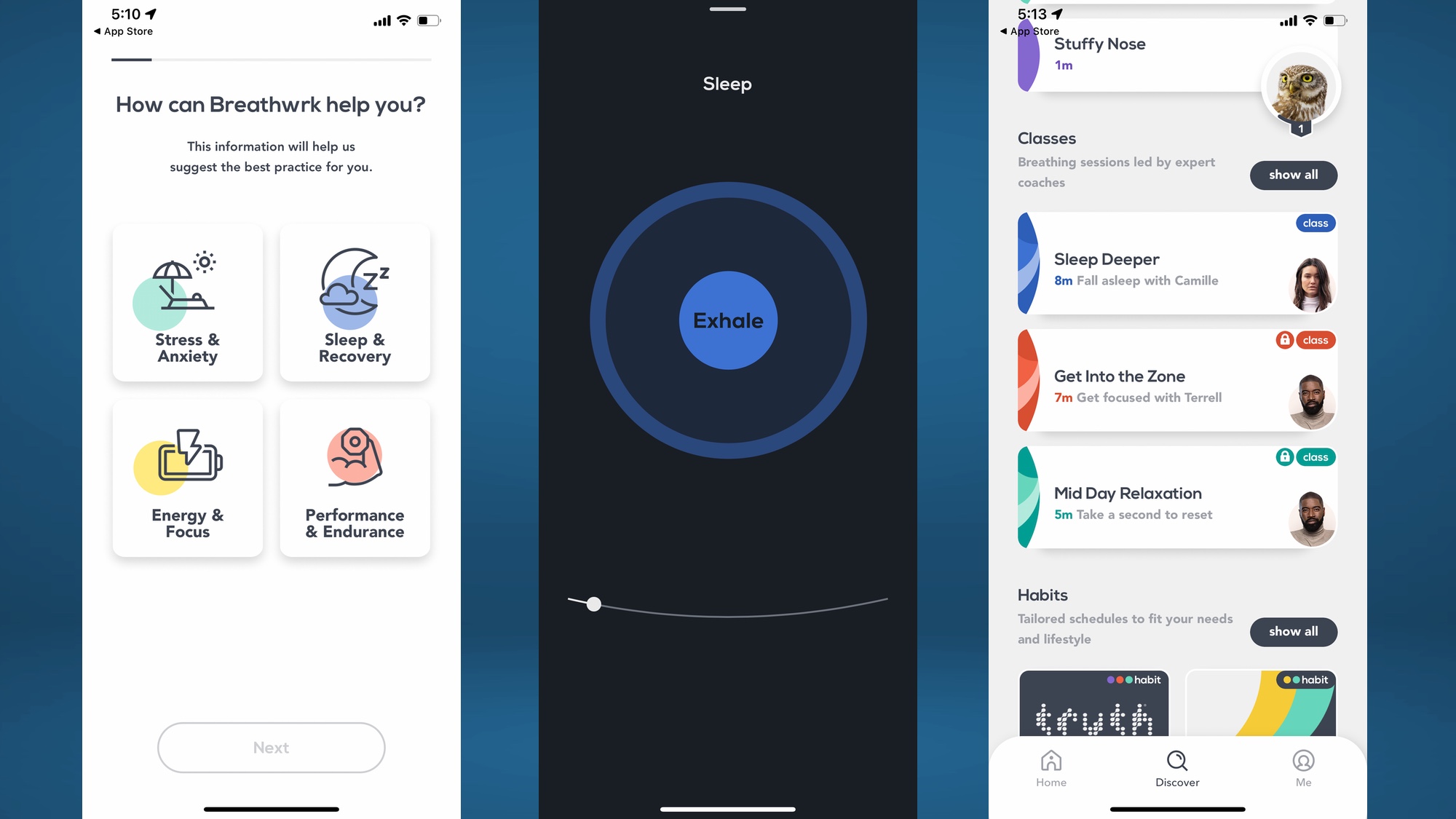
It's hard to get a good night's sleep if you're carrying around too much stress, and breathing exercises just might be the thing to put you in the proper frame of mind for bed. That's the idea with Breathwrk, which counts helping you fall asleep among the many benefits of its different classes and exercises. (The app also has tools aimed at eliminating stress and improving endurance.)
Breathwrk touts its customizability, with different exercises, visuals, haptics and breath coaches that you can adjust to make sure you're getting the most out of your experience. While it's a free download, a $7.99/month subscription provides unlimited access to 100-plus exercises. Paid members can also access all music sounds and coaches, customize the Breathwrk home page and track their progress toward whatever goals better breathing is going to help you reach.
9. Sleepa
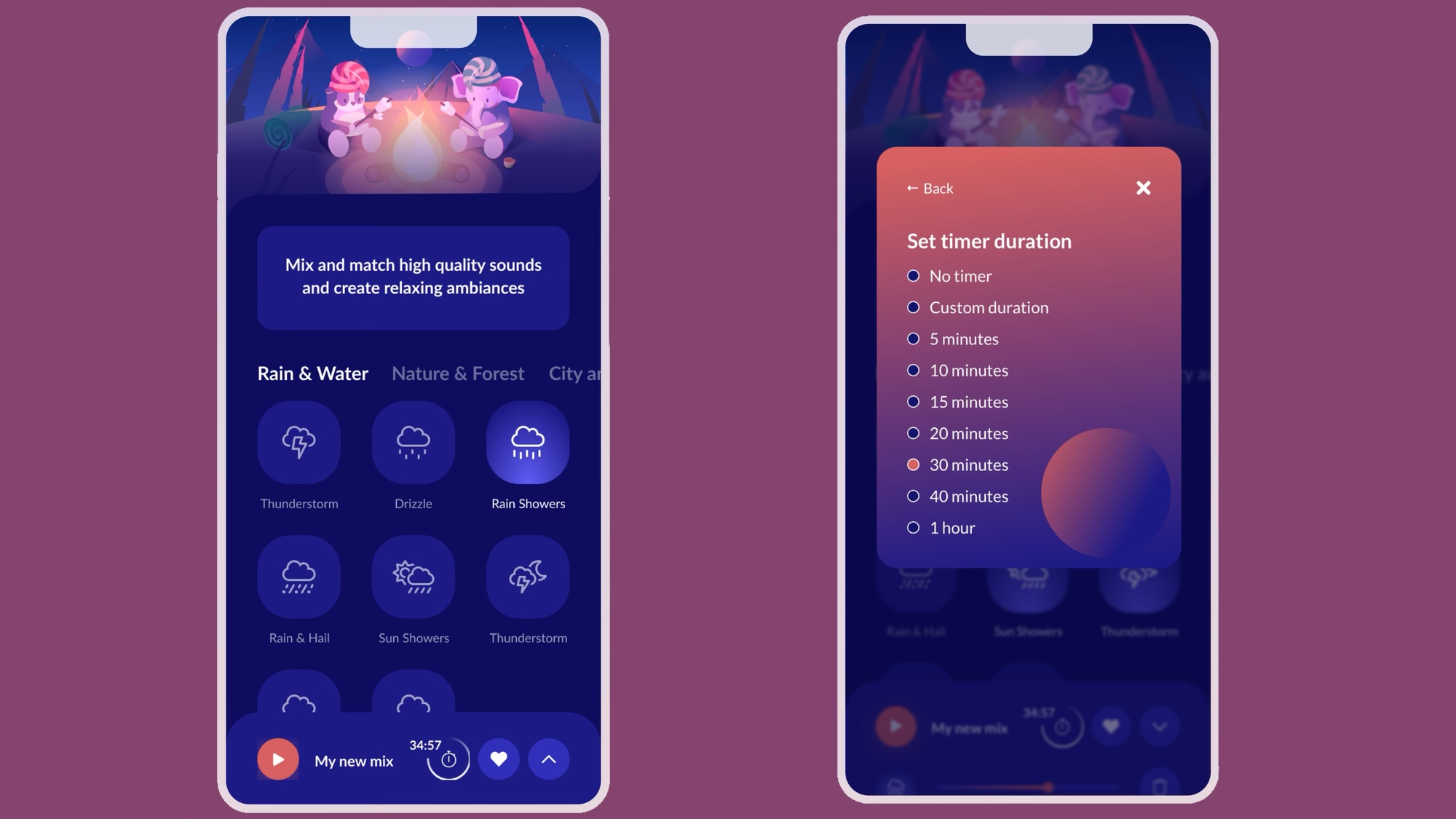
If you've given Sleepa a try before, it's worth revisiting the app, which now features a revamped interface. Previously, an Android exclusive, there's an iOS version of Sleepa now, too.
Otherwise, it's the same simple, helpful app as before, where the emphasis is on soundscapes that you can mix and match to create the best background noise for falling asleep. The free app comes with a variety of sound categories, such as Rain & Water, Nature & Forest, and more technical sounds like white, pink, and brown noise.
Sleepa is ad-supported, but a $2.99 monthly subscription unlocks all current and future features.
10. Sleepzy
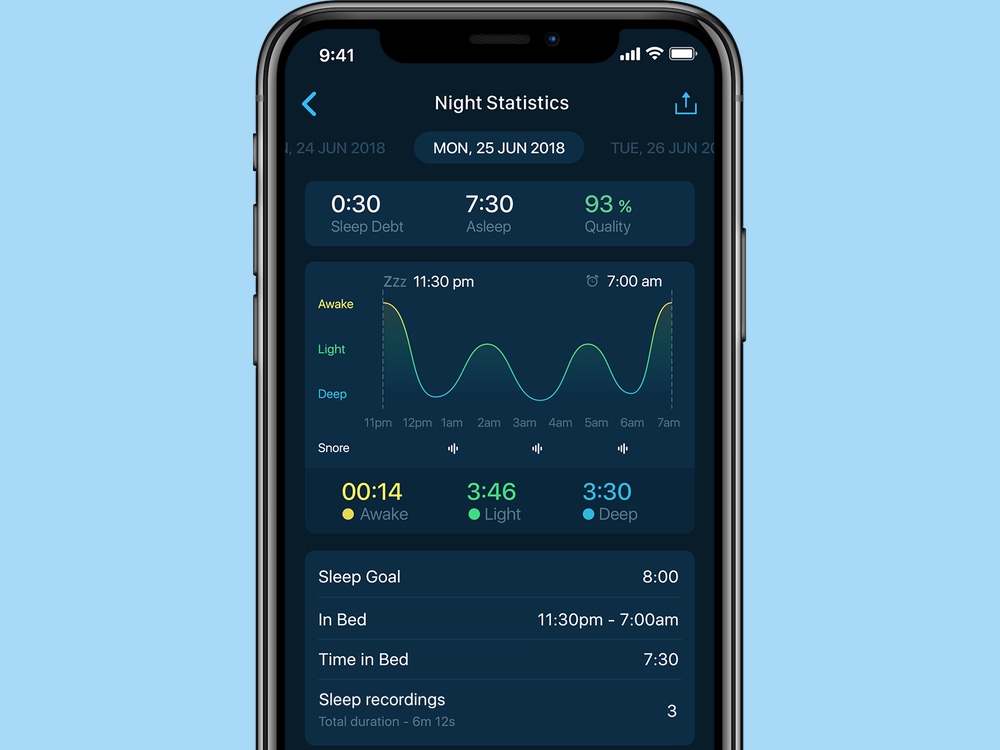
Apalon’s Sleepzy takes the old Good Morning Alarm Clock app and introduces expanded sleep-tracking and sleep aid features. But the alarm clock feature is still there — in fact, now it uses your sleep rhythms to find the best time to wake you up.
Like many other best sleep apps , Sleepzy uses your phone's sensors (or the Apple Watch) to track your sleep, allowing you to view your sleep quality, cycles, and sleep debt over time; you can also log a Sleep Diary and set your target sleep goals.
The app is free and ad-supported, with a $6.99/month subscription removing advertising and adding extended data tracking and sleep noise recording.
11. Pzizz
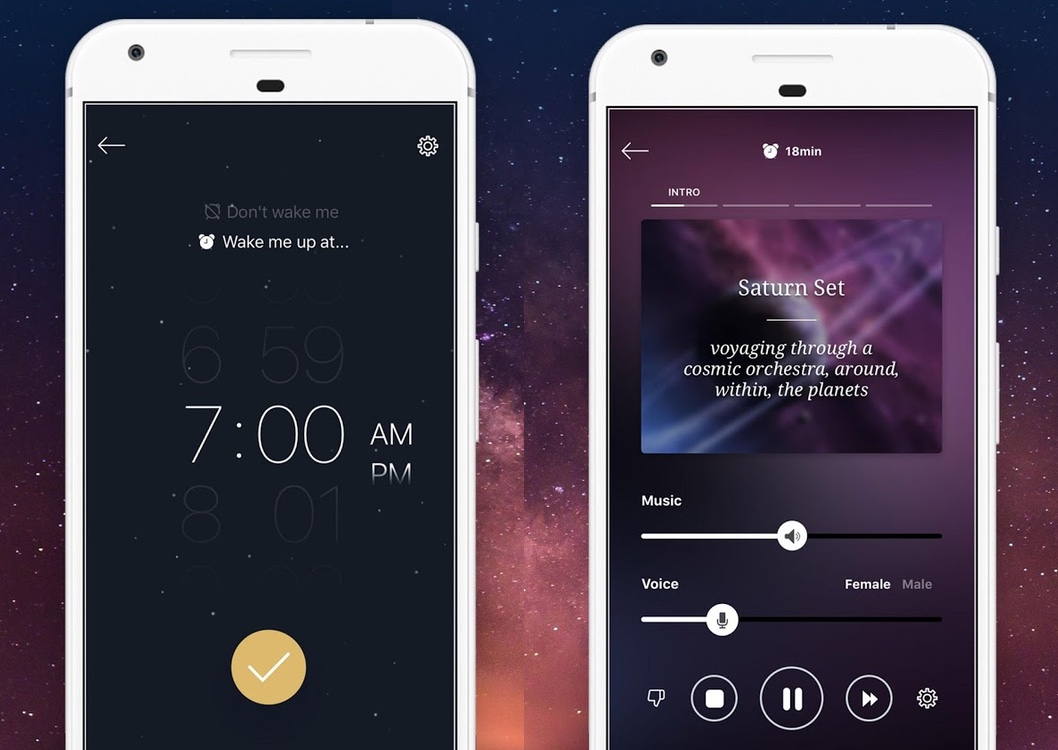
Pzizz helps users slip gently into sleep by combining music, words, sound effects and binaural beats to help you de-stress. Once users set a listening duration (10 minutes to 10 hours), Pzizz generates a unique sleeping soundtrack from its library of built-in media.
You're able to adjust the volume levels of music, sound effects and vocal tracks to achieve the sound you want. And Pzizz's makers estimate that there are some 10 billion possible combinations of audio elements, so you shouldn't run out of choices.
Pzizz's Pro account costs $7.99/month and gives you access to all Dreamscapes, Focuscapes and Narrations in the different Sleep, Nap and Focus modules.
12. AutoSleep
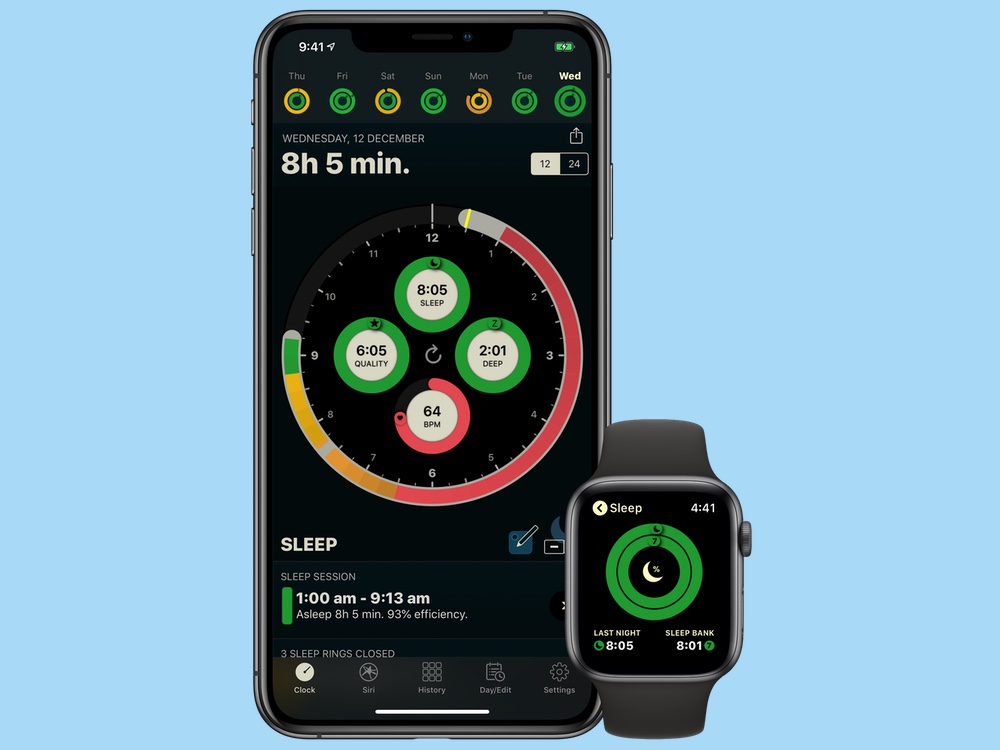
AutoSleep is another sleep tracking app for iOS that takes advantage of your Apple Watch sensors to both track sleep and assess the quality of your slumber.
If you wear your watch to bed, then the $4.99 app tracks your sleep activity and quality with the onboard sensors. The app then sends you a notification in the morning when you unlock your iPhone with a report of your night's sleep quality and activity.
Even if you don't wear your Apple Watch to bed, the app can still at least record your sleep duration, starting when you plug in your watch to charge.
- Download AutoSleep: iOS
13. Digipill
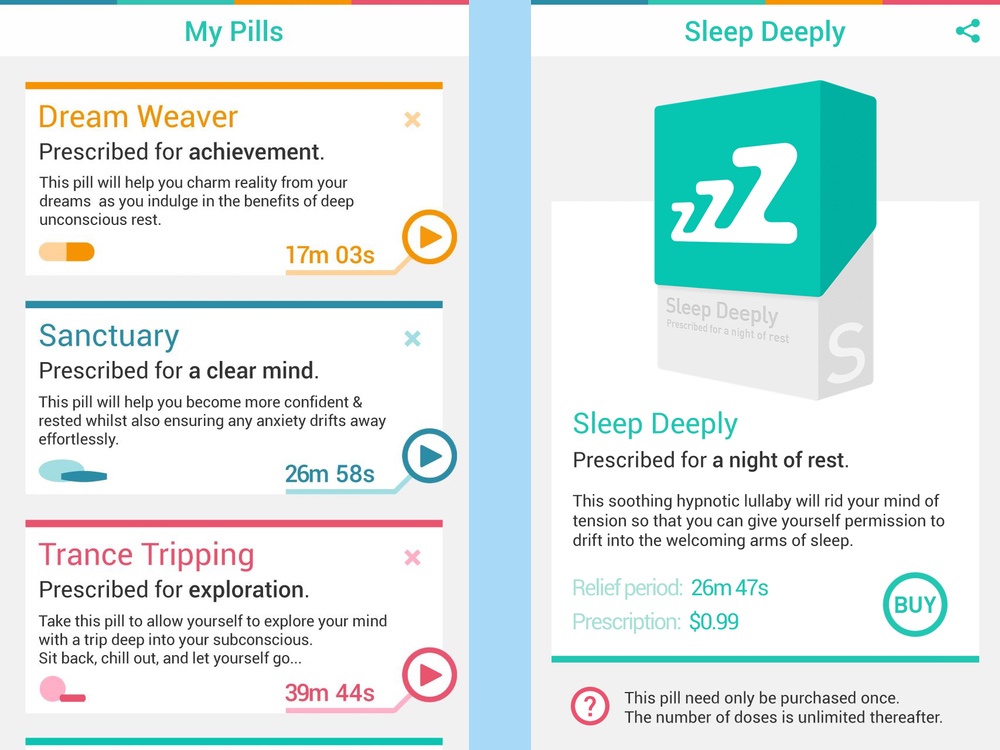
Digipill features a variety of purpose-built guided meditation sessions and soundscapes called "digipills", each designed for a variety of purposes, with the relaxing T-Break digipill coming free, and the rest as in-app purchases.
Of particular interest to light sleepers and insomniacs is the Sleep Deeply module, which costs $6.99. The module promises a "soothing hypnotic lullaby" to put you in the right frame of mind to drift off to sleep. The app features monthly subscriptions for other modules that strike your fancy as well.
14. PrimeNap: Sleep Tracker
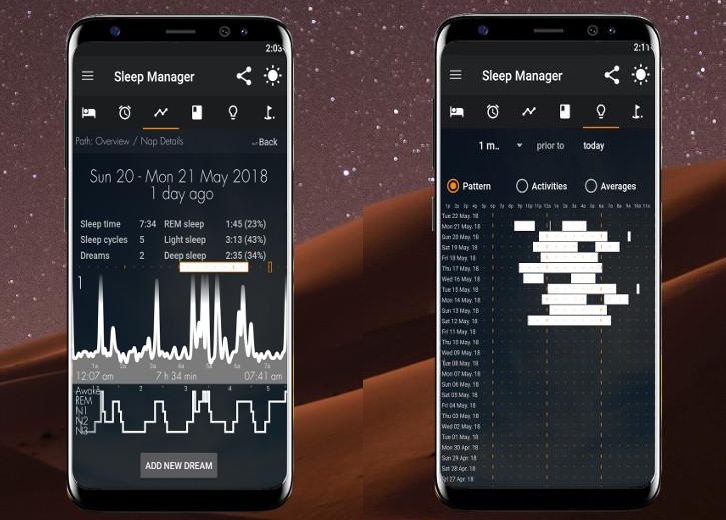
PrimeNap: Sleep Tracker might not have the most creative name or sharpest interface, but it does come with some solid features. With an in-app purchase, you can add an alarm clock to the mix.
PrimeNap does the usual sensor-assisted sleep logging, but it also includes a customizable activity log so that users can record how their daily activities might affect their sleep. This best sleep app also includes a dream journal, cinema mode, and red filter.
- Download PrimeNap: Android
15. Twilight
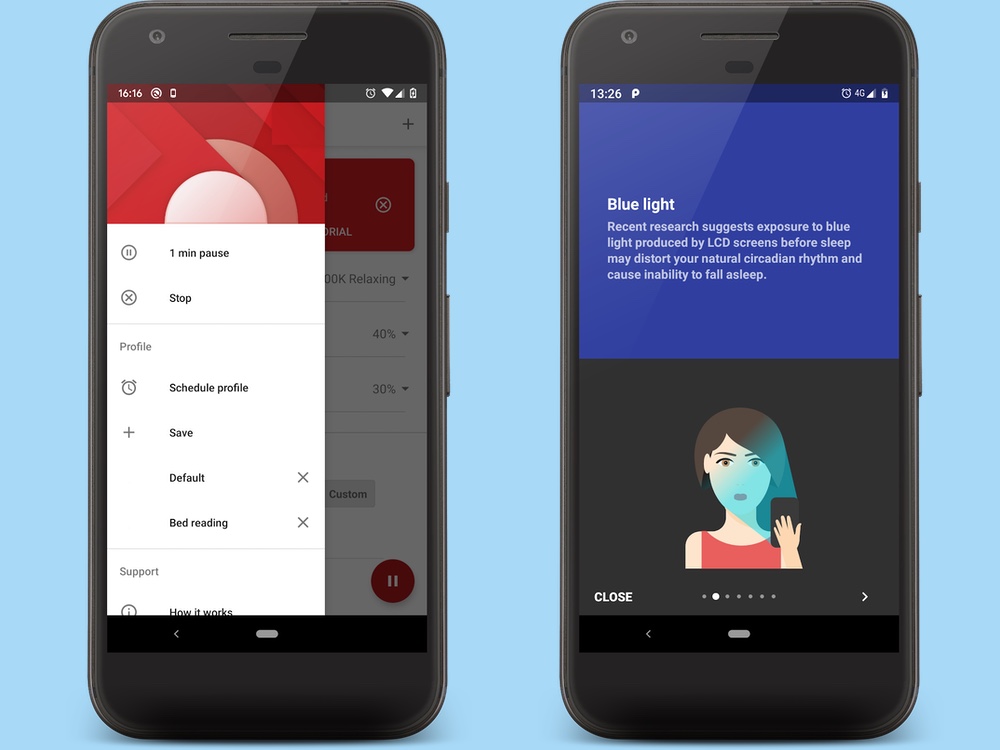
The bright, backlit displays of smartphones and tablets radiate a lot of blue light that's said to mess with your body clock and sleep cycle. Twilight is here to take care of that for Android users.
The app automatically adjusts the colors of your phone's display based on the time of day, gently toning down the blue and introducing a red filter as evening approaches and night falls. This results in a softer display that's easier on the eyes and less likely to mess with your sleep cycle.
- Download Twilight: Android
Sign up to get the BEST of Tom's Guide direct to your inbox.
Get instant access to breaking news, the hottest reviews, great deals and helpful tips.
Philip Michaels is a Managing Editor at Tom's Guide. He's been covering personal technology since 1999 and was in the building when Steve Jobs showed off the iPhone for the first time. He's been evaluating smartphones since that first iPhone debuted in 2007, and he's been following phone carriers and smartphone plans since 2015. He has strong opinions about Apple, the Oakland Athletics, old movies and proper butchery techniques. Follow him at @PhilipMichaels.

